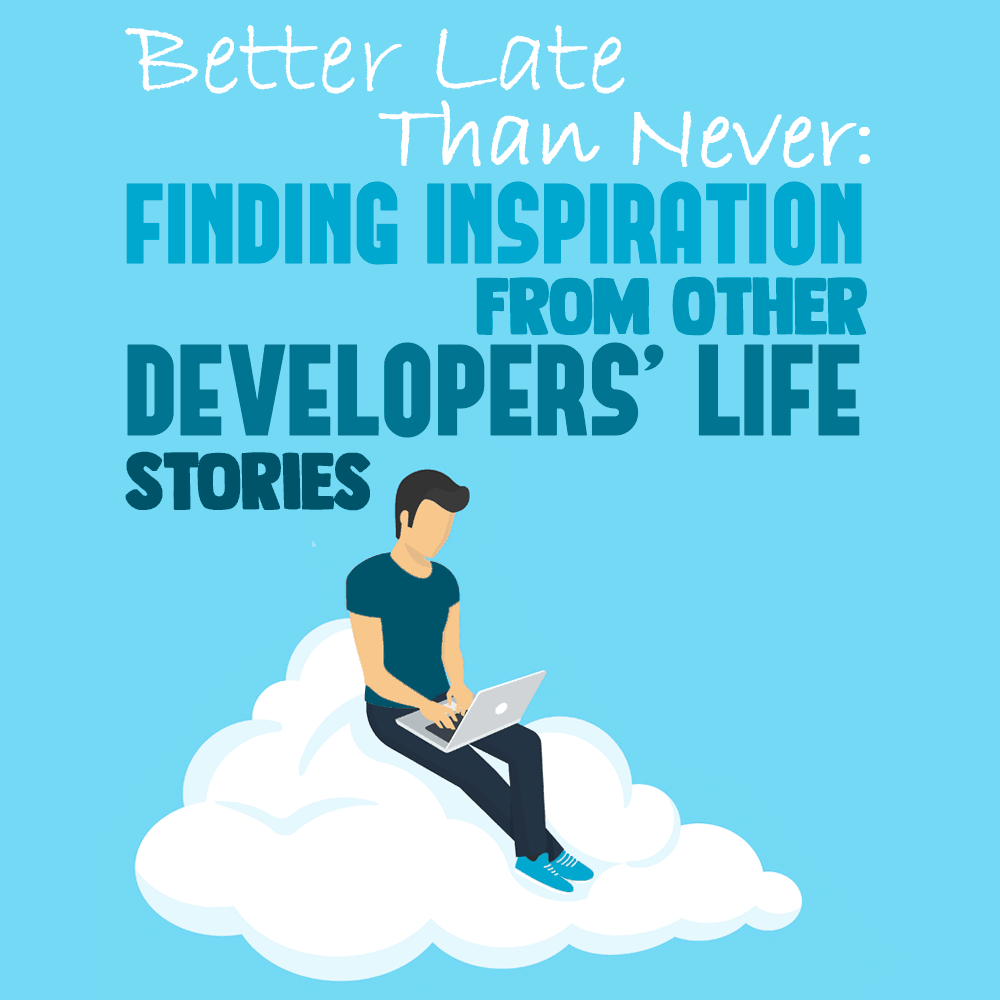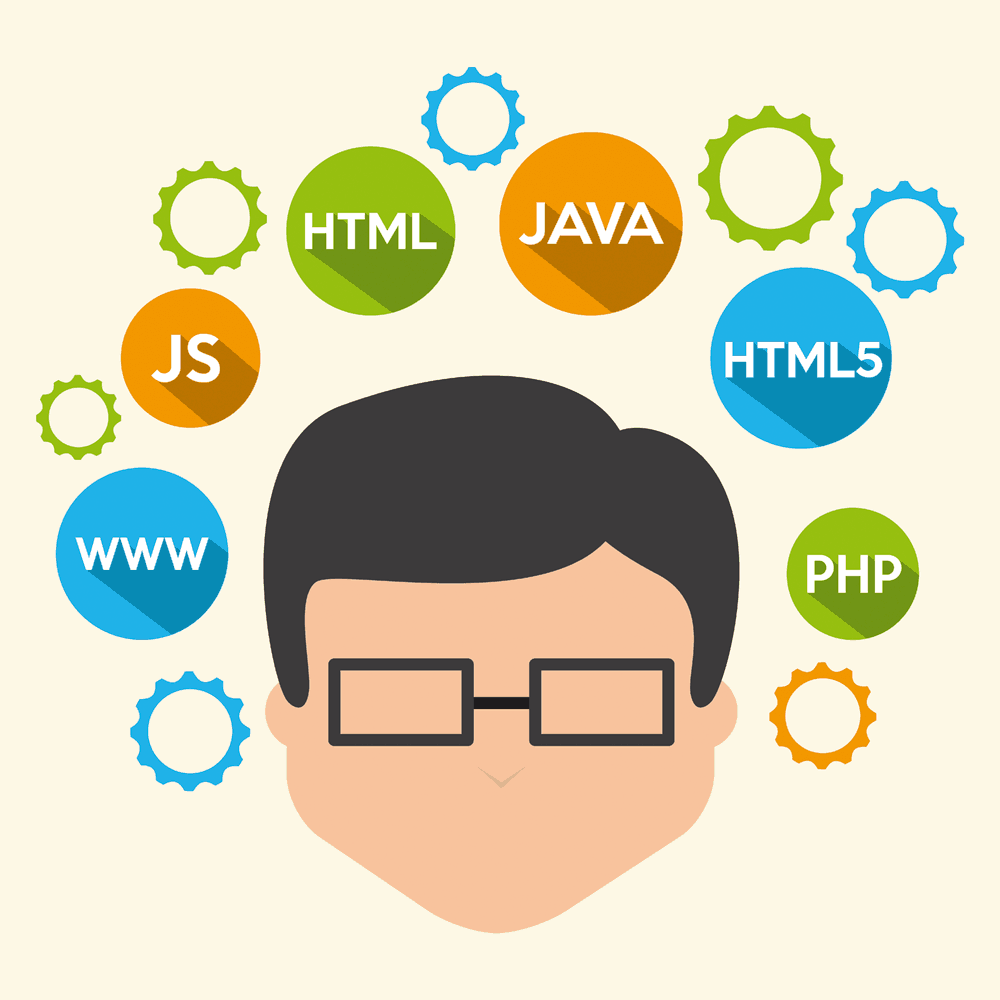
Social media and the internet have made this world a smaller place to live in. We meet all different kinds of people online, doing all kinds of jobs, and living very different lives.
Being a Software Engineer interested in progressing in my profession, I’ve met a number of talented programmers online. Their achievements and success stories are enough to either motivate you or intimidate you. Some of these programmers even started programming at the age of 6! When I found that out, I immediately thought, “That’s not what happens in my country.”
In India, there isn’t a culture of doing what your heart desires. The truth is that children aren’t groomed to decide for themselves what career they want. Instead, the culture is to follow what’s in trend.
Half the computer developers in India exist because computer science is trendy, not because it’s their passion. That is the reason why children aren’t motivated to start early.
I was a bit different, though. Hearing stories of programmers starting young motivated me. There are two ways to take success stories like these:
- You could be intimidated
OR
2. You could be inspired
I chose the latter, and as Robert Frost said, “that has made all the difference.” Seeing successful older developers lit a fire inside me to be like them, not run away from them.
There’s a lot of power in other people’s journeys to becoming a coder—you can learn about perseverance, diligence, and motivation. Reading about another person’s approach to a problem can offer you unique tools to deal with a similar situation.
Let me share with you my story of becoming a coder. This way, I can hopefully inspire you to learn from not only my early mistakes as a programmer, but also from my subsequent smart decisions.
Keep an Eye on Your Real Goal
I was 16 years old when I knew I wanted to be a computer engineer (that’s what it’s called in India). A computer engineer is someone who is initially taught about all the fields of engineering and then gets taught about computers.
Pretty confusing, right? Well, that’s just how it goes in India.
The only problem was that I didn’t know how to start. I didn’t have a clue, and I didn’t even think to Google it. I simply did what everyone else was doing—I studied for the All-India Engineering Exam for acceptance into college. I thought that, then, I would start to study computers.
To be completely honest, I didn’t even know what programming was back then. I just knew I had to score well on the engineering test to get accepted into college.
Upon reflection, there is so much I would change about that time if I had the chance. The first thing would be my decision to study endlessly for that engineering test, rather than focus my energy and efforts on studying what I was planning to do for the rest of my life: programming.
Here’s the first thing you can learn from my story: Always keep an eye on your actual goals, what you really want, not what you guess might get you there. You might not even know how to reach your goals, but in this day and age, lack of guidance should not be an excuse. With the internet at your disposal and your mind set on a goal, you can aim straight at the bull’s-eye.
You Won’t Necessarily Be as Skilled as Others, and That’s Alright
In my school, we had a chance to opt for one of two subjects for the two years before college: information technology (IT) or physical education (PEd). PEd was easier to score in, so I opted for that. Yeah, the irony … I know.
I did not take the subject I was working to achieve. I thought, “It’s okay, I’ll study it in college.” I did score well enough on the All India pre-engineering test to get into a computer science course at a decent college, but life was only getting started.
I still remember my first computer programming class where we were given a simple C code to write:
- Problem no. 1: What is this codeblocks?
- Problem no. 2: What is this printf?
- Problem no. 3: What’s C again?
Half of my class had a background in IT, whereas I had chosen to play football in PEd. As a result, they easily wrote the code that was given to us, while the other half, including me, was left with blank faces. We didn’t have a clue of what was going on in the class.
I’d never been so embarrassed in my life.

You, too, will face similar situations in your coding career. Inevitably, there will come a day when someone else will know something you don’t. It might cost you your pride. It might cost you a promotion. It might even cost you your job.
But what you do after such debacles is what’s truly important.
Learn to Bounce Back
The next day, I typed into the YouTube search box the following query: “C for beginners.” I found a course by the NewBoston and spent the next couple of days locked in my room learning the basics.
I won’t lie, it was hard. It was like nothing I’d ever done before, but all I knew was that I had to do it. Classmates of mine had an advantage over me, and I knew I had a long way to go. That actually became the fuel for me to start studying, hard and fast.
I studied daily—and by daily, I really do mean daily—for the next four years of my college career. By the end of those four years, I was in a better place than the majority of my classmates.
This included those who had studied programming beforehand!
What got me so far? What got the guy who couldn’t press a single key on his first day in class to a position much better than any of his peers? I can break it down into three important things: hard work (you won’t succeed without it), grit, and—what made the real difference—consistency.
Your Age Doesn’t Matter, but Consistency Does
Now, I can’t stress this enough: The most important tool for success in your coding career is consistency. You might be super talented or work super hard for a month or two, but if you really want to greatly increase your chances of success, then work consistently—day after day, month after month.
Those two years that my classmates had on me were gone by the end of college because I had a stronger hustle and stayed consistent. Now, it isn’t just about those two years—this was just an example. As I told you, I’ve met people who started programming at age 6!
It’s great if you start early, and I would surely recommend that everybody choose their path in programming early and focus on it. However, there are great developers who started off in their 30s and even 40s. While I know programmers who started at age 6, I’ve also met programmers who started at 37 and are doing much better than the ones with years of formal education.
Having not started very early myself, all I’ve got to tell you about starting late is that it’s okay, and that you are in a field where your age doesn’t matter.
It never will, as long as you are consistent.
Don’t feel overwhelmed by people the same age as you who have more experience; it’s not the end of the world. You can be inspired by them, but don’t let their success intimidate you. Maybe they were early, but that doesn’t mean you’re late. The truth is, it’s never too late.
In Hindi, there’s a saying that goes, “Jab jaago tabhi savera,” which translates to “Whenever you wake up, then it’s the morning.” So, never repent starting something late in life. Always take it as a challenge and, as I said, it’s about consistency, not age.
Learning Is a Never-Ending Process

A quote attributed to various people over the years is “Learn from the mistakes of others … You can’t live long enough to make them all yourself!”
It might be tongue-in-cheek, but that doesn’t mean it isn’t true. There is a lot to learn from mistakes, our own as well as others’. Each story can be an inspiration to rethink our priorities or refocus our efforts.
The embarrassment of an error lasts only for a few seconds. Learning from it can be forever.
Reading stories is great, isn’t it? You know what’s even better? Creating your own. Just remember that you won’t have a success story overnight or in a couple of weeks—it’ll take time and a whole lot of hard work. But trust me when I tell you this, “The juice is worth the squeeze” at the end.
